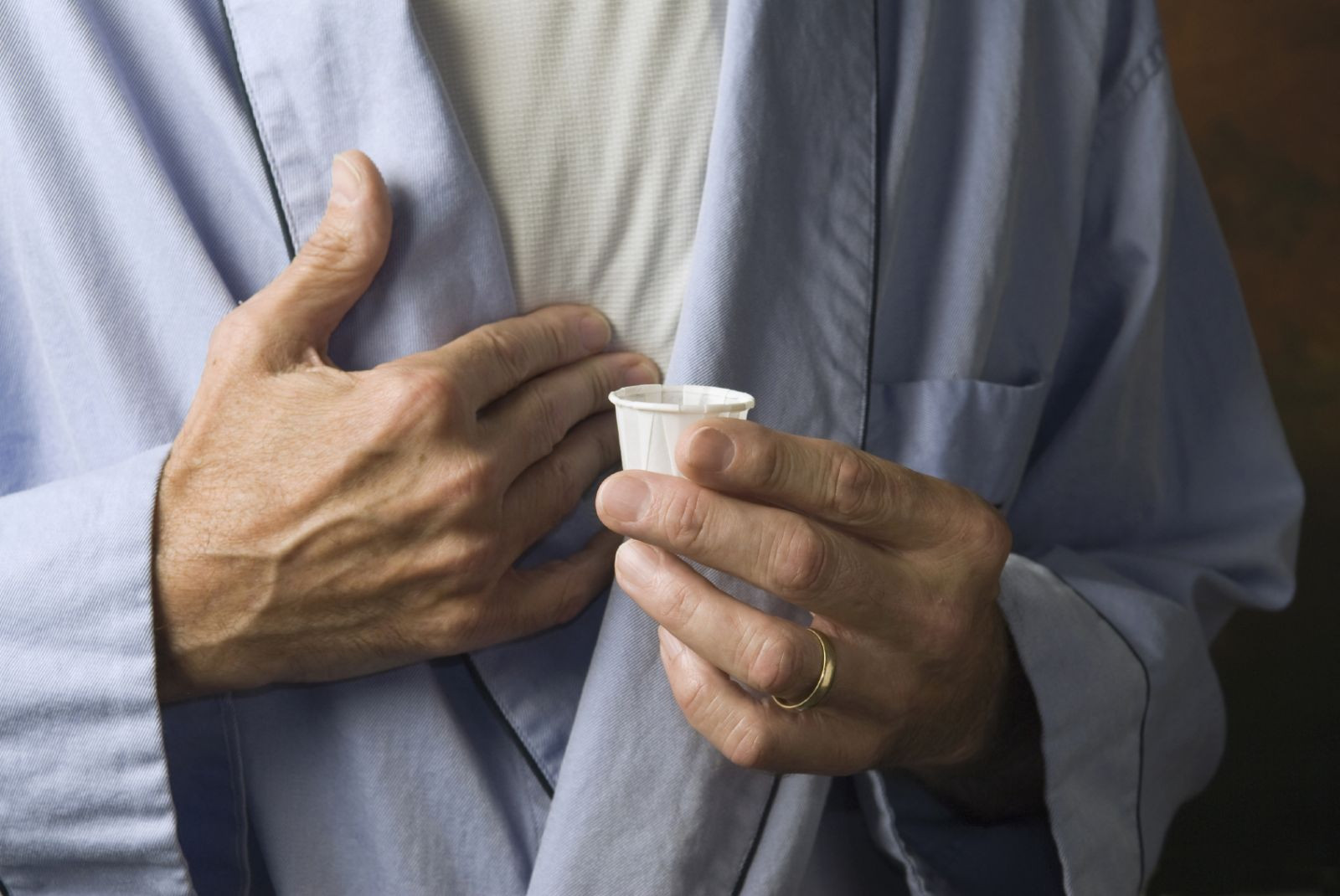
5 timeless habits for better health

What are the symptoms of prostate cancer?

Is your breakfast cereal healthy?

When pain signals an emergency: Symptoms you should never ignore

Does exercise give you energy?

Acupuncture for pain relief: How it works and what to expect

How to avoid jet lag: Tips for staying alert when you travel

Biofeedback therapy: How it works and how it can help relieve pain

Best vitamins and minerals for energy

Should you take probiotics with antibiotics?
Heart Health Archive
Articles
Update on the SPRINT trial: Preliminary results pan out
Formally published results of the SPRINT trial confirm the early conclusions released in September. A target systolic blood pressure (the top number) of 120 mm Hg or less offers real health benefits, including a lower risk for cardiovascular problems and even death. Even if you don’t have high blood pressure, the results are so compelling that everyone should know his or her blood pressure and develop a plan with a primary care physician to achieve and maintain the “ideal” blood pressure for them.
The new cholesterol-lowering drugs
Persistently high “bad” LDL cholesterol leads to heart attacks and strokes. New drugs can help, but they are not appropriate for all men. |
These potent medications are for hard-to-manage cases of high cholesterol—not replacements for the tried-and-true statins.
Is your heartburn pill working for you?
| Image: iStock |
For optimal results, you need to take your medication regularly and time it correctly to your meals.
Have you tried to cool the burning discomfort of heartburn with medication and failed to get full relief? If so, a few simple adjustments to optimize your treatment may be all you need.
Marching orders: How to start a walking program
Walking with a friend or spouse may help you stick to your fitness goals. |
This simple activity is one of the best ways to protect your heart.
Cardioversion for afib
Ask the doctor
Q. I am scheduled for an electrical cardioversion for my atrial fibrillation. What should I expect?
A. Electrical cardioversion is a procedure to convert a fast or irregular heartbeat (such as what happens with atrial fibrillation, or afib) to a normal rhythm. Before the procedure, your cardiologist may recommend a special ultrasound test of your heart to check for blood clots. Cardioversion may dislodge any clots, which can be life-threatening. So if clots are found, the procedure may be delayed for a few weeks, so you can take blood-thinning medications to lower your risk of complications such as stroke.
Cardiac rehab is often the best medication for recovery
One advantage of attending cardiac rehab is the power of the group support, which can provide added motivation. |
Participation in a cardiac rehabilitation program following a heart attack helps people live longer and better.
When blood pressure dips too low
To avoid feeling dizzy or faint when you first get up in the morning, pump your legs a few times to get your blood flowing before standing up. |
Do you ever feel dizzy or faint when you stand up? Here's one common reason—and what to do about it.
A common lung condition that often overlaps with heart disease
Image: iStock |
Chronic obstructive pulmonary disease is on the rise. Should you be tested for it?
For nearly half a century, the top three causes of death in the United States were heart disease, cancer, and stroke. But a slow, steady drop in deaths from stroke and a gradual rise in fatalities from lung disease have shifted that long-held order. In 2008, chronic lower respiratory diseases rose to third place on the list of leading killers.
Whole-grain oats: Best bet for lowering cholesterol
Image: Thinkstock |
Research we're watching
Want to nudge down your cholesterol level? Try a bowl of oatmeal for breakfast. New research adds to earlier evidence that among the whole grains, oats are the most effective choice when it comes to lowering cholesterol.
The findings were gleaned from 24 studies that looked at blood lipids (cholesterol and triglycerides) in people who ate diets featuring whole-grain foods versus non-whole-grain control diets. Compared with the control diets, whole-grain diets lowered total cholesterol levels by an average of 4.6 points. Diets featuring oats proved to be slightly superior, dropping cholesterol levels by 6.5 points, on average. An added bonus: whole-grain diets don't appear to lower beneficial HDL cholesterol. The report appeared in the September 2015 American Journal of Clinical Nutrition.

5 timeless habits for better health

What are the symptoms of prostate cancer?

Is your breakfast cereal healthy?

When pain signals an emergency: Symptoms you should never ignore

Does exercise give you energy?

Acupuncture for pain relief: How it works and what to expect

How to avoid jet lag: Tips for staying alert when you travel

Biofeedback therapy: How it works and how it can help relieve pain

Best vitamins and minerals for energy

Should you take probiotics with antibiotics?
Free Healthbeat Signup
Get the latest in health news delivered to your inbox!
Sign Up











